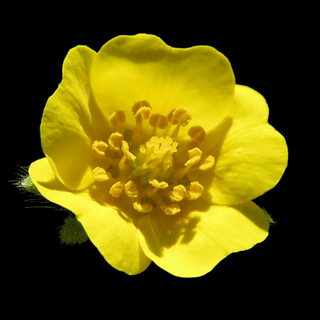According to an international report, every two in five of the world’s plant species are facing the risk of extinction — due to the exploitation of nature by humankind.
Titled State of the World’s Plants and Fungi 2020, the report was the result of an international collaboration of 210 scientists from 42 countries, and was led by the Royal Botanical Gardens (RBG), Kew, in the UK. In 2016, a previous edition of this report had estimated that 21% of the world’s plant species were threatened with extinction, and in 2020, it has almost doubled to 39.4%. And while four billion people rely on herbal medicines as their primary source of healthcare, according to the report, 723 species that are used medicinally are already threatened with extinction.
Researchers believe that relying on a tiny fraction of plants and fungi for our food and energy, has not only left us vulnerable to climate change, but has also contributed to malnutrition. Instead of relying solely on rice, maize and wheat, exploring 7,039 edible plants, which hold potential as future foods, could help curb biodiversity losses. “The thousands of neglected plant species are the lifeline to millions of people on Earth tormented by unprecedented climate change, pervasive food and nutrition insecurity, and [poverty]… Harnessing this basket of untapped resources for making food production systems more diverse and resilient to change should be our moral duty,” Stefano Padulosi, a senior scientist, who contributed to the study, noted.
Related on The Swaddle:
Flowers Are Changing Colors To Adapt To Rising Temperatures, Declining Ozone
Experts believe that the primary threat to plant species is the destruction of wild habitat for agricultural land. In addition, they believe invasive species, pollution, and obviously, the climate crisis, are contributing to the threat. “We are eroding the very foundations of our economies, livelihoods, food security, health and quality-of-life worldwide,” Professor Robert Watson, an atmospheric chemist at the University of East Anglia, told Forbes in 2019, commenting on an inter-governmental report by the UN, on the potential extinction of plant species. However, he added that “it is not too late to make a difference… but only if we start now at every level from local to global.”
In fact, the report lauded the example of India, where scientists developed
new wheat varieties, which made more efficient use of soil nutrients, while we were facing droughts in the 1960s. The report also recognized India’s success with community-scale energy initiatives, and its national and state biofuel policies. Further, the researchers discussed patenting of nature-based products in India, which they believe can not only generate wealth, reduce poverty, and enhance human well-being, but also encourage conservation. The report noted that these steps have helped “conserve India’s natural resources and support development of local communities.”
“We would be able not survive without plants and fungi — all life depends on them… Every time we lose a species, we lose an opportunity for humankind. We are losing a race against time as we are probably losing species faster than we can find and name them (sic),” Professor Alexandre Antonelli, the director of science at RBG, who led the report, said.




